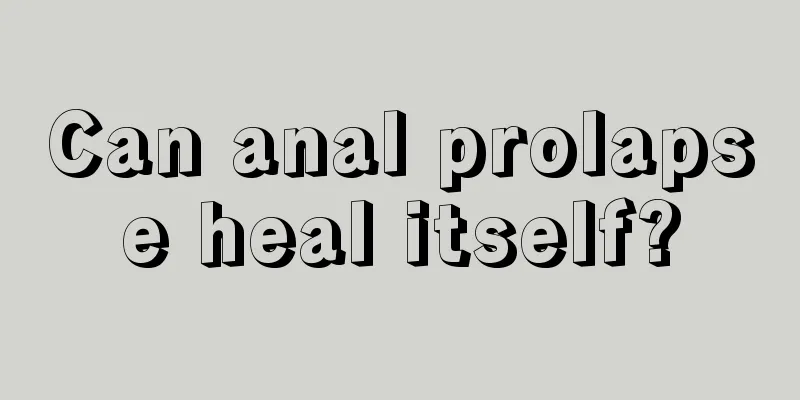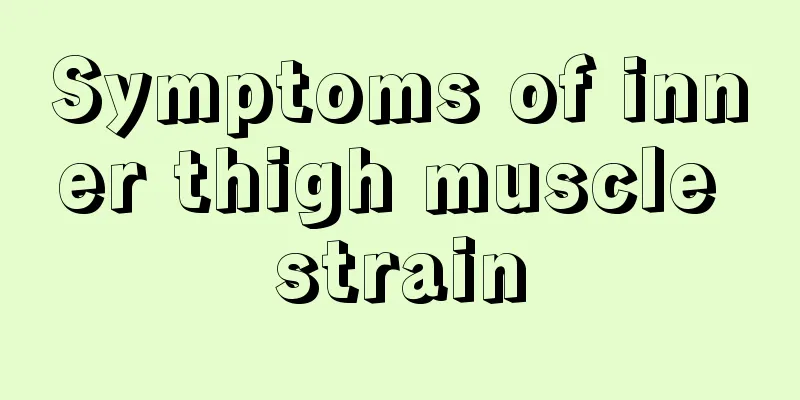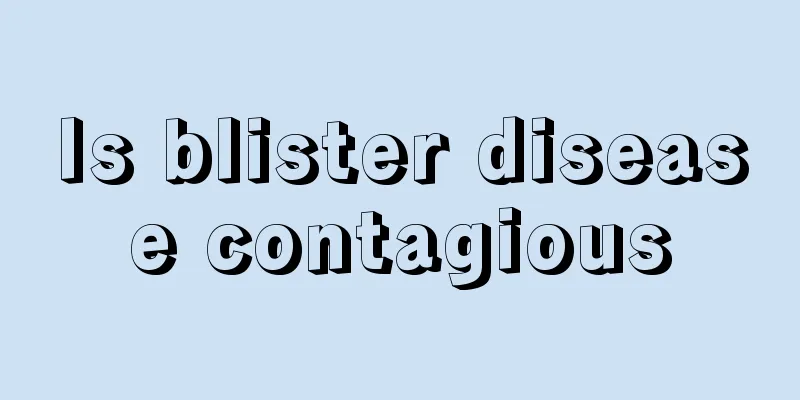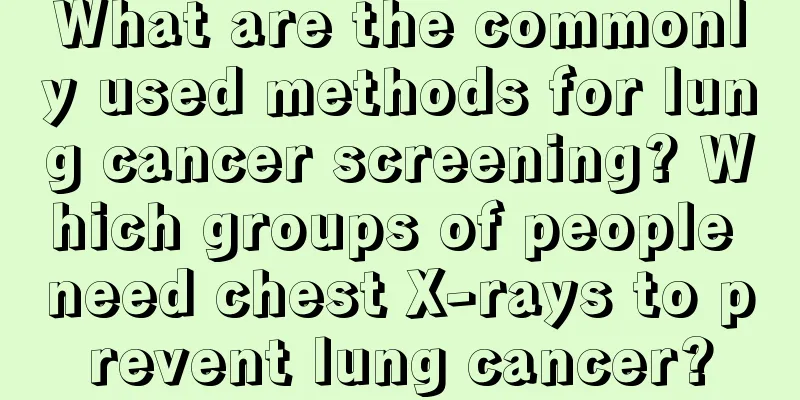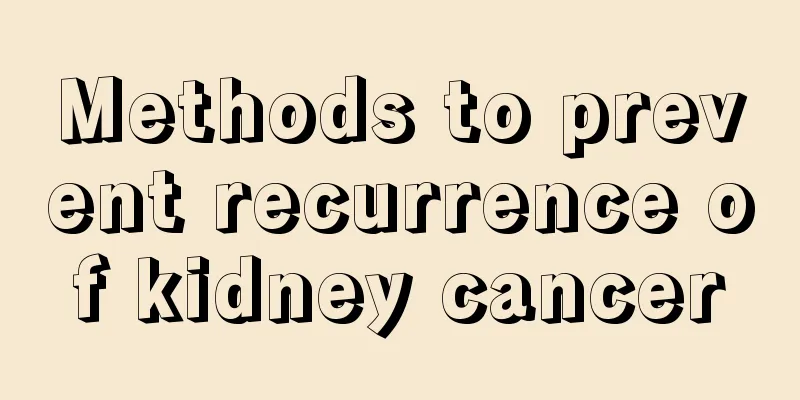Early and mid-stage symptoms of cardia cancer
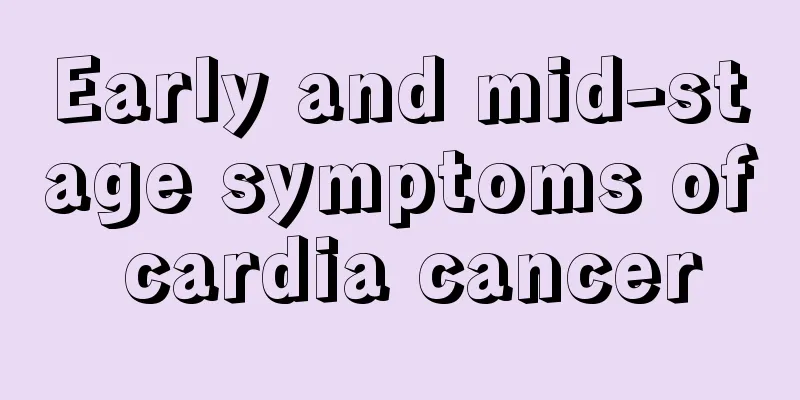
|
There is a big difference between the research on Western medicine and traditional Chinese medicine. There are no symptoms in the early stage of cardia cancer, or there are no clear early symptoms. Difficulty in swallowing will not occur until there is obvious stenosis. According to statistics, the main symptoms in the early stage are foreign body sensation or food retention. Symptoms of mid- and late-stage cardiac cancer: Foreign body sensation: usually a slight tightening and stuffy feeling behind the sternum, which has no obvious relationship with eating and can be intermittent or continuous. Or occasionally, there is a feeling that food is sticking to the esophageal wall when eating. Choking sensation: It is relatively mild and occasionally occurs when swallowing food. It may disappear on its own or recur. It does not affect eating. It may also occur during mood swings and can be easily mistaken for a neurological functional symptom. Other symptoms: Some patients have a dry or tight feeling in the throat when eating dry food; a few patients have belching. The above symptoms of early cardia cancer described by Western medicine are basically consistent with the choking disease in traditional Chinese medicine. Traditional Chinese medicine has described the early symptoms of cardia cancer: choking means difficulty swallowing and difficulty swallowing; and the diaphragm in traditional Chinese medicine means obstruction of the chest diaphragm, vomiting after eating or even inability to eat, which is consistent with the symptoms of the middle and late stages of Western medicine. In short, choking syndrome is often a precursor to diaphragm syndrome. Diaphragm syndrome is often a serious consequence of choking syndrome. Choking and diaphragm can also occur at the same time, so they are collectively called choking diaphragm. The symptoms of advanced cardia cancer mainly include progressive dysphagia, which eventually develops into difficulty drinking water and even difficulty passing saliva. Food reflux and chest and back pain. If the cancer invades the trachea and bronchus, esophageal-tracheal fistula and (or) esophageal-bronchial fistula may form, resulting in severe coughing, dyspnea and lung infection symptoms. For example, tumor necrosis can cause bleeding, manifested as vomiting blood and blood in the stool. If it invades large blood vessels, fatal bleeding may occur. As for dehydration, weakness, weight loss, systemic edema and cachexia caused by hypoproteinemia, they are all terminal manifestations of cardia cancer. In addition, corresponding symptoms and signs may also be seen due to metastasis of the tumor to other organs and viscera. Cardiac cancer: http://www..com.cn/zhongliu/bma/ |
<<: Cell immunotherapy controls your melanoma
>>: How to treat late-stage melanoma
Recommend
How many kinds of high-five push-ups can you do
Male friends, do you have the habit of doing push...
What are the traditional Chinese medicines that are good for the eyes
Eyes are important organs in the human body. As t...
What color underwear is good for your body
In modern social life, a curvy figure is the most...
What are the bad effects of drinking alcohol on your body?
We basically cannot do without drinking in our da...
What to do if your body is on fire
When lighting a cigarette or using a lighter, or ...
Mole is red, swollen and painful
Moles are a phenomenon that everyone is familiar ...
What are the methods to prevent gallstones
To prevent gallstones, we should first pay attent...
What to do if you have a stomachache due to chickenpox
Chickenpox is a common disease, which is usually ...
How to wash blood stains from clothes
When washing clothes, there are often some annoyi...
What is the normal hearing of the ear
The ear is a very important part of our body. All...
What is the difference between cassava and sweet potato?
In fact, many friends mistakenly distinguish cass...
There is a burning pain on the inner thigh
There are currently two common causes of burning ...
The place where the rabies vaccine was given is red and swollen
In daily life, if you are bitten or scratched by ...
How to care for primary bronchogenic lung cancer Routine care for primary bronchogenic lung cancer
In fact, what we usually call lung cancer is bron...
Why are there horizontal lines on the neck
The face is where wrinkles are most likely to app...

